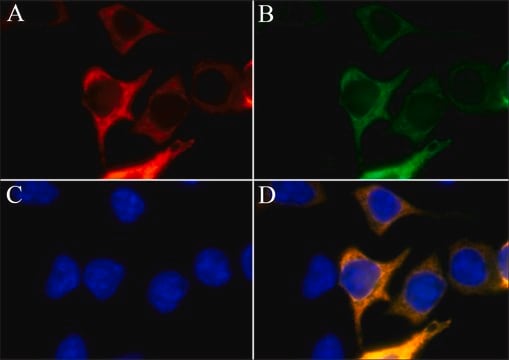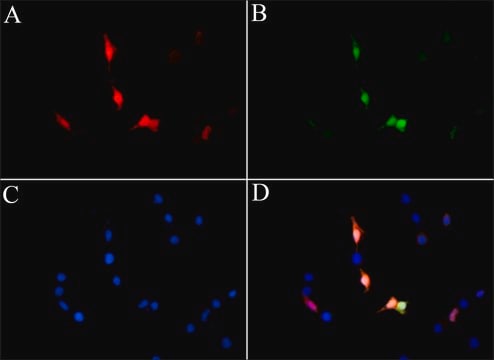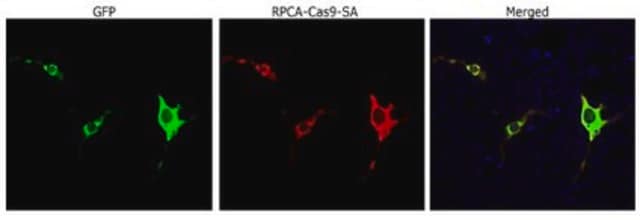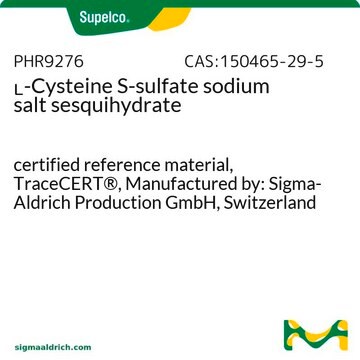MABE1823
Anti-AsCpf1 Antibody, clone 3D3-F7
clone 3D3-F7, from mouse
Synonym(s):
EC 3.1.27.2, AsCpf1, CRISPR-associated endonuclease Cpf1
Sign Into View Organizational & Contract Pricing
All Photos(2)
About This Item
UNSPSC Code:
12352203
eCl@ss:
32160702
NACRES:
NA.41
Recommended Products
biological source
mouse
antibody form
purified immunoglobulin
antibody product type
primary antibodies
clone
3D3-F7, monoclonal
species reactivity
bacteria, Acidaminococcus
packaging
antibody small pack of 25 μg
technique(s)
western blot: suitable
isotype
IgG2aκ
UniProt accession no.
target post-translational modification
unmodified
General description
CRISPR-associated endonuclease Cas12a (UniProt: U2UMQ6; also known as EC: 3.1.27.2, AsCpf1, CRISPR-associated endonuclease Cpf1) I encoded by the Cas12a (also known as cpf1) gene in Acidaminococcus species. CRISPR is an adaptive immune system that provides protection against mobile genetic elements, such as viruses, transposable elements, and conjugative plasmids. CRISPR clusters contain sequences complementary to antecedent mobile elements and target invading nucleic acids. They are transcribed and processed into CRISPR RNA (crRNA). Cas12a, an endonuclease from the type V-A CRISPR system, has several unique characteristics when compared to Cas9 system that increase the utility of CRISPR-based gene editing. Cas12a mediated cleavage utilizes a single and short CRISPR RNA) without requiring trans-activating crRNA. Cas12a recognize a 5′ T-rich protospacer adjacent motif (PAM, TTTN for this specific enzyme), unlike Cas9 enzymes which recognize 3′ G-rich PAMs, thus this enzyme increases the possibilities for genome editing. The endonuclease activity of Cas12a results in staggered 4-base 5′ overhangs 19 and 22 bases downstream of the PAM on the non-targeted and targeted strand respectively.
Specificity
Clone 3D3-F7 specifically detects CRISPR-associated endonuclease Cas12a.
Immunogen
His-tagged recombinant fragment corresponding to 197 amino acids from the C-terminal region of Acidaminococcus Cas12a.
Application
Anti-AsCpf1, clone 3D3-F7, Cat. No. MABE1823, is a highly specific mouse monoclonal antibody that targets CRISPR-associated endonuclease Cpf1 and has been tested in Western Blotting.
Research Category
Epigenetics & Nuclear Function
Epigenetics & Nuclear Function
Western Blotting Analysis: A 1:1,000 dilution from a representative lot detected AsCpf1 in HEK293 cells expressing HA-tagged AsCpf1 (Courtesy of Stefan Schuchner, Ph.D. and Egon Ogris, M.D., Medical University of Vienna, Austria).
Quality
Evaluated by Western Blotting in HEK293 cells expressing HA-tagged AsCpf1.
Western Blotting Analysis: 1 µg/mL of this antibody detected AsCpf1 in lysate from HEK293 cells expressing HA-tagged AsCpf1.
Western Blotting Analysis: 1 µg/mL of this antibody detected AsCpf1 in lysate from HEK293 cells expressing HA-tagged AsCpf1.
Target description
~151 kDa observed; , 151.21 kDa calculated. Uncharacterized bands may be observed in some lysate(s).
Physical form
Format: Purified
Protein G purified
Purified mouse monoclonal antibody IgG2a in buffer containing 0.1 M Tris-Glycine (pH 7.4), 150 mM NaCl with 0.05% sodium azide.
Storage and Stability
Stable for 1 year at 2-8°C from date of receipt.
Other Notes
Concentration: Please refer to lot specific datasheet.
Disclaimer
Unless otherwise stated in our catalog or other company documentation accompanying the product(s), our products are intended for research use only and are not to be used for any other purpose, which includes but is not limited to, unauthorized commercial uses, in vitro diagnostic uses, ex vivo or in vivo therapeutic uses or any type of consumption or application to humans or animals.
Not finding the right product?
Try our Product Selector Tool.
Certificates of Analysis (COA)
Search for Certificates of Analysis (COA) by entering the products Lot/Batch Number. Lot and Batch Numbers can be found on a product’s label following the words ‘Lot’ or ‘Batch’.
Already Own This Product?
Find documentation for the products that you have recently purchased in the Document Library.
Our team of scientists has experience in all areas of research including Life Science, Material Science, Chemical Synthesis, Chromatography, Analytical and many others.
Contact Technical Service








